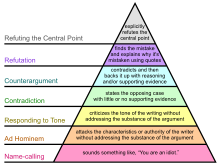User:lol1VNIO
| — Wikipedian — | |
 | |
| Born | June 1 |
|---|---|
| Account statistics | |
| Edit count | 2,777 (non-automated) |
I focus mainly on building and maintaining articles.
- Building is the creation or expansion of articles or sections through reliable sources.
- Maintaining is the undoing of good- or bad-faith edits that aren't policy-compliant.
Interests
- Blue Archive
- Kaguya-sama: Love Is War – Ultra Romantic
- Did you know that the takedown of a controversial Goddess of Victory: Nikke advertisement led to another controversy?
- Onimai: I'm Now Your Sister!
- Chibi Godzilla Raids Again
- DYK that the initial lyrics to "Shukusei!! Loli Kami Requiem" were "as painful as hitting someone with concrete"?
So far, all of my major contributions lie within the intersection of East Asia and animation. It is not uncommon for there to exist more sources in a foreign language like Japanese in this topic area. I'm native Vietnamese and know basic Japanese vocabulary and sentence structure. I translate sources using my own understanding, common sense, and a dictionary (1st priority); and machine translation also (2nd).
I'm not retiring until Touhou Project gets good article or greater status and Blue Archive's plot is complete and concise; I regret quiting that game.
I also have lesser-interested interests but it is trivial and is left as an Easter-egg hunt for the reader, starting at XTools:nonautoedits-contributions/en.wikipedia.org/Lol1VNIO.
The project
Content and editing
"It takes only a moderate commitment to edit, but it takes a serious commitment to write."
—somewhere in the depths of Wikipedia
Entering hiatus from reverting vandalism all the time has really changed my views on Wikipedia. If many editors were just "bad actors", then the number of featured articles would never have exceeded twenty, ever. This is the real world, however, and we have over six thousand amazing printable articles. And seeing immensely broad-concept articles such as Philosophy or Logic recently become featured is very satisfying. I am optimistic and believe all vital articles can be improved until good article or greater. It's a miracle that Wikipedia works in practice because would never have worked on any paper.
But there are only about 60,000 vitals out of 6 million articles. This is where my own guideline on notability comes into play. Basically, a topic is said to be notable iff it can be reviewed and featured on the main page as a did-you-know hook. This is somewhat stricter than the actual WP:Notability guideline but guarantees at least a decent article. Still, there is this crazy obstacle that haunts me and probably others since 2001. Step one to writing any article is searching for reliable sources... That is difficult. I might come back to this after my first good or featured nominations, but: If there are too many sources, then very broad neutrality has to be kept constantly; if there aren't that many sources, the article might never see itself getting featured.
The scariest thing to me is lost media. Libraries are destroyed, books are burnt, media reader become obsolete, optical discs rot, websites die out. Writing an article isn't just documenting a thing, it's also archiving all available sources on a given topic for future generations. Further, please at least archive your web sources, instructions at H:AAS.
I have a hunch that WP:No original research (NOR) is the most important one out of the core content policies. Neutrality is just common sense for something as academic as Wikipedia, while verifiability is par to NOR, sure, but NOR does a better job at explaining reliable sources. This is just one of the niche beliefs of mine. Also, Wikipedia:Manual of Style/Accessibility is beautiful.
Conduct

First and foremost: civility; suppose a new editor has a very fringe worldview that is informally considered delusional. On the talk page, they provide tinfoil-hat conspiratorial sources that they deem reliable to confirm their belief. Now look from their perspective and see how they feel when someone calls them stupid. What does that do other than enrage them, making them increasingly hostile towards mainstream, which radicalizes them, and, and, and. In fact, calling someone stupid is just admitting you don't have anything against the supposed evidence. Instead, just refute their point. And if they insist and make logical fallacies? That's when you play the last-resort giving-equal-validity-can-create-a-false-balance spell card, which is overpowered. Now, I get that the vast majority of tinfoil-hatted people always act the same way in denying logical reasoning, but my point is do not use ad hominem even against the worst of people. And since this is an online discussion where you have all the time in the world to think, ad hominem makes you look just plain ignorant.
| You have an idea | |||||||||||||||||
| Are you sure that your idea is a good one by common sense and that it improves the encyclopedia? | |||||||||||||||||
| Don't do it | Do it | ||||||||||||||||
Politically, I value individual thought very highly. Individual thought heavily implies consensus. Do not let peer pressure deter you from voicing your unpopular opinion that you think is beneficial for the encyclopedia. And with WP:Civility, theoretically, there it doesn't hurt to hear constructive criticism from opponents. The common sense diagram featured in WP:What "Ignore all rules" means can be simplified to just one conditional.
Note that hate speech does not belong on Wikipedia.
Links
- Contact
- Email me – fast response
- lil2BNIO#6878 on Discord – start by saying you came from Wikipedia
- Subpages:
- Alts
